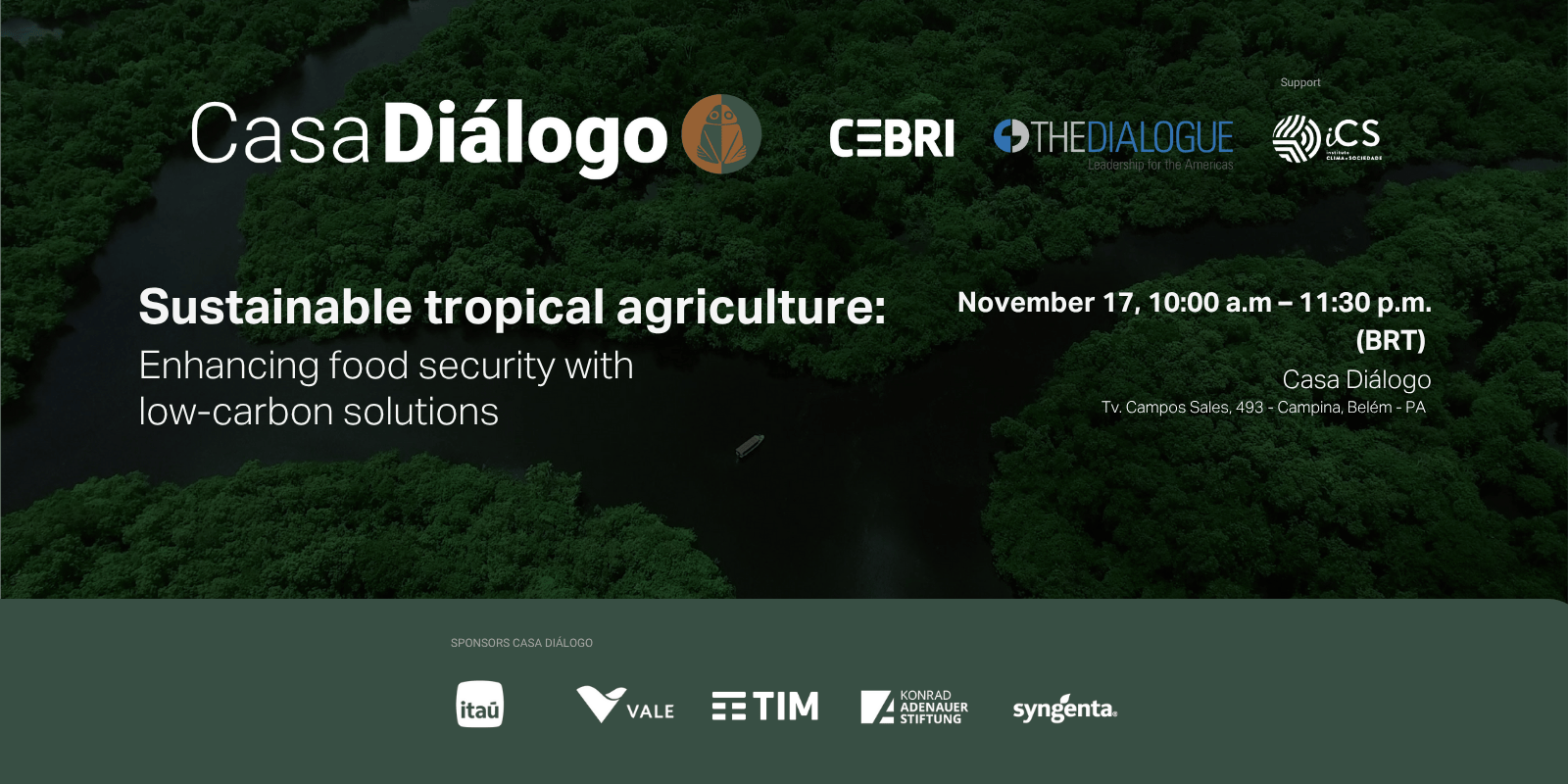In-person events
COP30 | Sustainable tropical agriculture: Enhancing food security with low-carbon solutions
November 17, 2025
Climate change is reshaping global food production systems and impacting food security worldwide. Tropical countries (and particularly Brazil) hold unique potential to provide sustainable and low-carbon solutions, given their biodiversity, agricultural productivity, technological innovation and sustainable energy matrix. However, global sustainability frameworks often reflect asymmetrical sustainability relations between temperate and tropical climates and agriculture systems. These frameworks influence agricultural production and trade but do not always account for the ecological and socio-economic diversity of tropical regions.
This roundtable will discuss how global sustainability metrics can better incorporate the realities of tropical agriculture, fostering climate justice, reducing inequalities, and enabling low-carbon development in food systems. Finally, the role of technology and traceability in fostering sustainable agriculture systems will be explored through concrete examples.
Partnership: Itaú, Vale, TIM, Konrad Adenauer Stiftung (KAS Brasil) e Syngenta
SPEAKERS
Opening: Thaís Jesinski Batista, Deputy Director of the Climate Transition Program at CEBRI
Eduardo Bastos, CEO of ABAG (Brazilian Agribusiness Association)
Marcos Jank, Trustee at CEBRI and Coordinator of Insper Agro Global
Roberto Castro, Stewardship Leader in Brazil and Specialist in Sustainable Tropical Agriculture at Syngenta
Diego Cadete, Head of Vertical Food & Beverage Brazil at Siemens
Filipe Guimarães Graça, Head of Corporate Relations & Experience at Cubo Itaú
Climate change is reshaping global food production systems and impacting food security worldwide. Tropical countries (and particularly Brazil) hold unique potential to provide sustainable and low-carbon solutions, given their biodiversity, agricultural productivity, technological innovation and sustainable energy matrix. However, global sustainability frameworks often reflect asymmetrical sustainability relations between temperate and tropical climates and agriculture systems. These frameworks influence agricultural production and trade but do not always account for the ecological and socio-economic diversity of tropical regions.
This roundtable will discuss how global sustainability metrics can better incorporate the realities of tropical agriculture, fostering climate justice, reducing inequalities, and enabling low-carbon development in food systems. Finally, the role of technology and traceability in fostering sustainable agriculture systems will be explored through concrete examples.
Partnership: Itaú, Vale, TIM, Konrad Adenauer Stiftung (KAS Brasil) e Syngenta
SPEAKERS
Opening: Thaís Jesinski Batista, Deputy Director of the Climate Transition Program at CEBRI
Eduardo Bastos, CEO of ABAG (Brazilian Agribusiness Association)
Marcos Jank, Trustee at CEBRI and Coordinator of Insper Agro Global
Roberto Castro, Stewardship Leader in Brazil and Specialist in Sustainable Tropical Agriculture at Syngenta
Diego Cadete, Head of Vertical Food & Beverage Brazil at Siemens
Filipe Guimarães Graça, Head of Corporate Relations & Experience at Cubo Itaú

